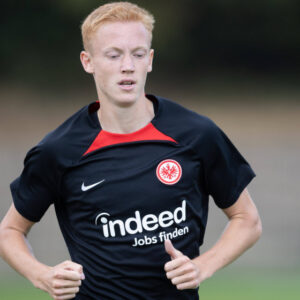
Arsenal news: Arsenal’s quest for a new striker during the summer transfer window of 2024 was filled with anticipation and speculation, especially around Ivan Toney. Despite the English international’s undeniable talent, showcased during his tenure at Brentford, Arsenal, led by their sporting director Edu, ultimately decided against signing him. What led to this surprising turn of events?
Initially, Toney was viewed as a potential game-changer for Arsenal. His consistent goal-scoring record in the Premier League caught the eye of many, including Edu, who personally met with Toney to discuss a move to North London. However, as discussions progressed, Arsenal’s management, particularly manager Mikel Arteta, began to have reservations.
Here is why Arsenal decided to reject Ivan Toney
The first hint of hesitation came from an insider’s perspective, suggesting that Arsenal’s interest cooled after a meeting with Toney didn’t go as planned. This wasn’t just about footballing ability; it was about fit within the squad and the club’s philosophy. Arteta, known for his emphasis on a specific playing style and team cohesion, felt Toney might not mesh well with the existing players or adapt to the tactical demands of his system.
Moreover, Arsenal’s decision was influenced by a strategic review of their squad needs. With players like Kai Havertz performing well and other options in Gabriel Jesus and Leandro Trossard, the urgency to integrate another striker into the mix diminished. This reassessment was pivotal, leading to the conclusion that Toney’s addition might not significantly elevate the team’s performance.
Additionally, there was a financial aspect to consider. While Toney’s potential transfer fee was speculated to be around £40 million, the cost-effectiveness of such a move was debated internally. Arsenal, perhaps, saw better value in other areas of their squad or in younger prospects who could grow into the system over time.
More:
The move also had an impact on Toney, who, despite wanting to challenge himself at a bigger club, eventually found himself moving to Al-Ahli in the Saudi Pro League. This unexpected career trajectory after being linked with Arsenal highlights the unpredictable nature of football transfers.
In retrospect, Arsenal’s decision not to sign Toney might be seen as a gamble. While it preserved the squad’s current dynamics and wage structure, it also meant missing out on a proven goal scorer. However, this choice reflects a broader club strategy under Arteta and Edu, focusing not just on individual talent but on how each player fits into the grand scheme of Arsenal’s future.
As the season progresses, fans and analysts alike will watch with interest to see if Arsenal’s tactical squad building pays off or if the absence of a player like Toney will be felt in crucial matches. The path not taken with Ivan Toney will remain one of the intriguing “what ifs” in Arsenal’s recent transfer history, illustrating the complex interplay of strategy, style, and squad dynamics in modern football.





